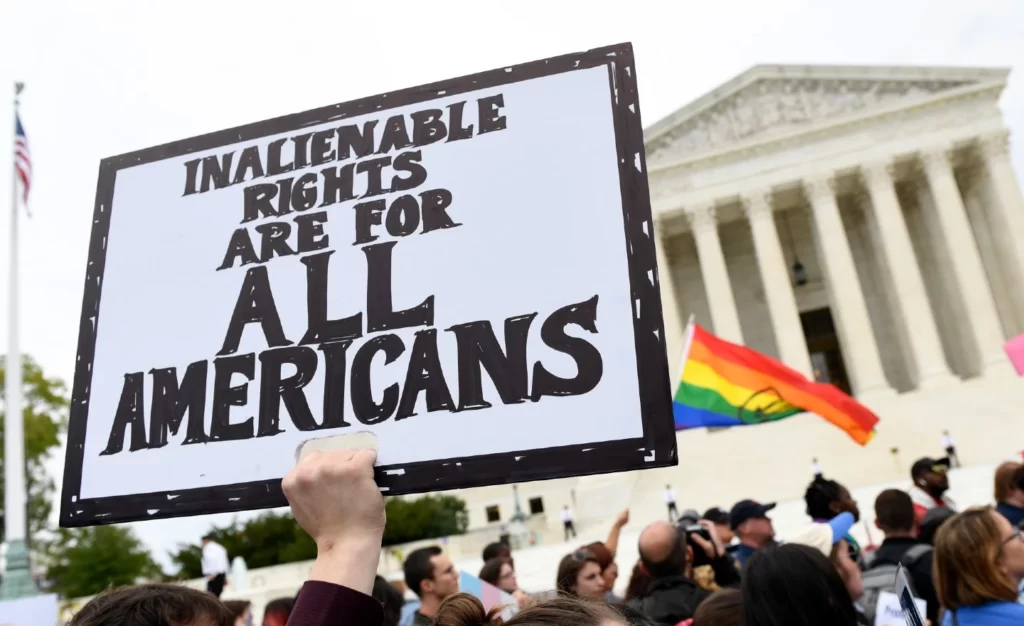Of all the issues that divide the American people, none is more vexing than gay rights.
We can differ whether the border is secure … or not. Whether the last election was stolen … or not. Whether we should have surrendered in Afghanistan … or not. They are contentious issues, to be sure – but are still debatable on facts, perceptions, and beliefs. None of those issues directly question the fundamental constitutional rights of a segment of the general population.
We have within society a large segment of the population that believes that gay sex is a moral transgression and a threat to the health and future of the species. Those beliefs are often the result of deep religious convictions. Two of the biggest religions in the world – Christianity and Muslim – oppose homosexuality. In the most extreme cases, sexual acts between same-sex persons are subject to harsh punishments – even death. In theocratic states, gay relationships are banned by law.
We grapple with this issue on a daily basis. The United States was founded on Judeo-Christian principles, but our Founders gave us a secular Constitution that protects the rights of those who are not affiliated with a special religion. In America, atheists have the same rights as Christians, Jews, Muslims, etc.
With that in mind, do gay people have the same rights as heterosexual people – even those with strong religious convictions?
For some populations, that question evolved from “no” to “yes”. The most notable example is black Americans. But also, Asians – and more specifically – the Chinese. Women. They all evolved into greater constitutional rights.
Today, gays enjoy the full range of constitutional rights. They can co-habitat … be employed … join the military … live wherever they choose … get married … raise children … buy homes together. All things that were disallowed in the not-too-distant past.
There has also been a cultural change. Gay people can live openly. They are accepted in careers where their sexuality would have ended them. Openly gay people can be seen in entertainment and the newsrooms. Even Christian denominations have opened the doors to gay clergy – to the level of bishops.
However, there is still a significant portion of the population who morally abhor gay relationships. It is both a matter of religious fervor and personal anxiety. But the religious intolerance is losing out to secular acceptance – and there is no going back.
While there are still deep feelings regarding homosexuality – on both sides – as a civic or public policy issue, the game is over. Those who oppose homosexuality have few public policy issues to advance. There is some room for civic debate when it comes to limiting salacious aspects from the youngest children. Extreme or harmful sexual practices can be outlawed. But that is also applicable to straight sexual practices. Examples of explicit gay sex can be restricted by location and age group. Same for hetero performances.
There are folks who not only hate the “sin” but the sinner as well. Some display hostility against gay people. Some get violent. But none of that will change the fact that gay relationship is fully protected by the Constitution and the courts. Intimidation or violence against gays is a crime … period
Through my commentaries, I have occasionally advised political candidates to leave the gay issue off their brochures. There are very few civic, legislative, or constitutional options that can be pursued by public officials to limit the rights of gay people.
If you do not want to have a gay person cross the threshold of your home, you have that right. You can feel however you like about gay folks. But to try to inhibit their rights individually or collectively will only cause problems for everyone – and ultimately fail.
Gay life has been normalized both legally and socially. There are not long two sides to that debate.
So, there ‘tis.
